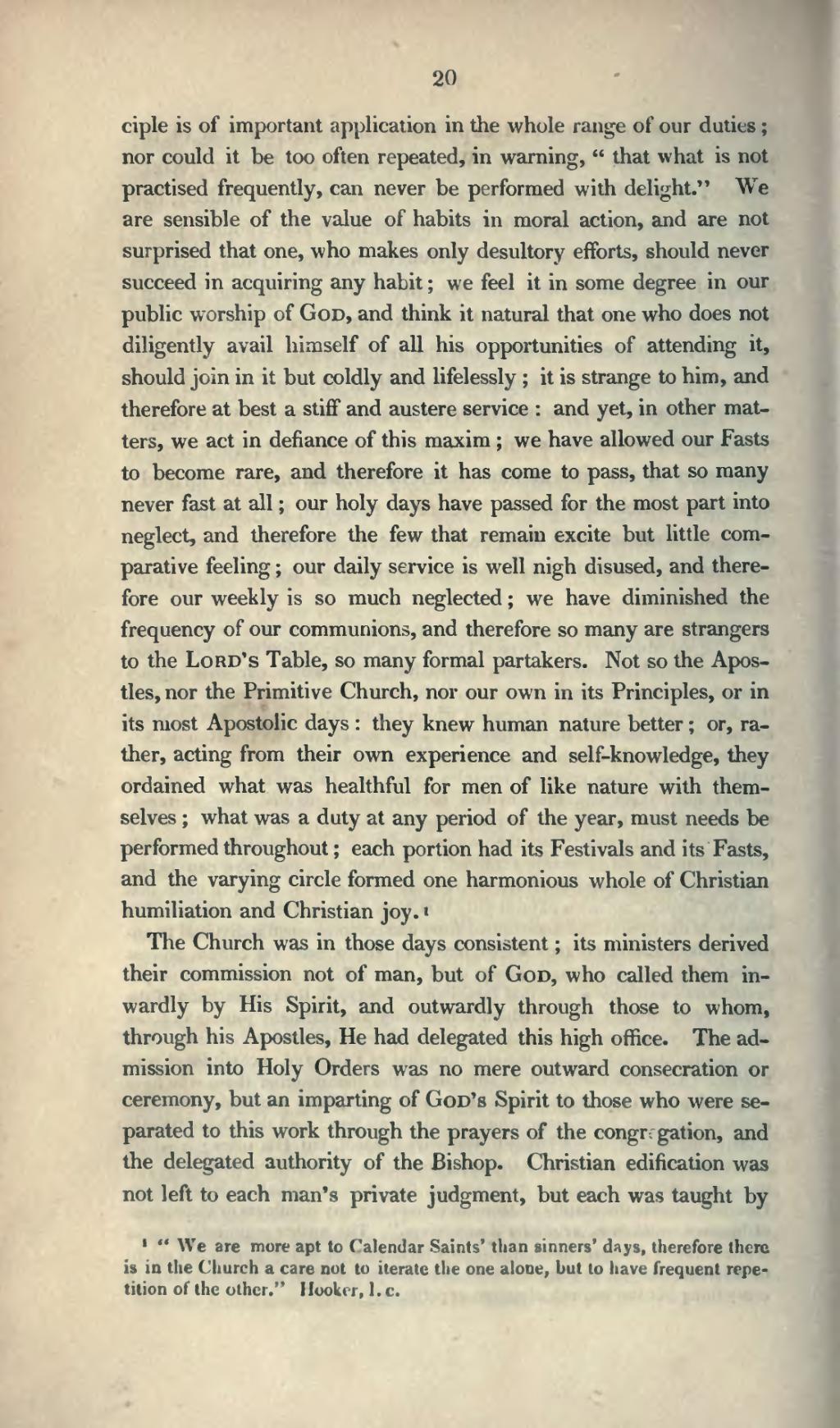20
ciple is of important application in the whole range of our duties; nor could it be too often repeated, in warning, "that what is not practised frequently, can never be performed with delight." We are sensible of the value of habits in moral action, and are not surprised that one, who makes only desultory efforts, should never succeed in acquiring any habit; we feel it in some degree in our public worship of God, and think it natural that one who does not diligently avail himself of all his opportunities of attending it, should join in it but coldly and lifelessly; it is strange to him, and therefore at best a stiff and austere service: and yet, in other matters, we act in defiance of this maxim; we have allowed our Fasts to become rare, and therefore it has come to pass, that so many never fast at all; our holy days have passed for the most part into neglect, and therefore the few that remain excite but little comparative feeling; our daily service is well nigh disused, and therefore our weekly is so much neglected; we have diminished the frequency of our communions, and therefore so many are strangers to the Lord's Table, so many formal partakers. Not so the Apostles, nor the Primitive Church, nor our own in its Principles, or in its most Apostolic days: they knew human nature better; or, rather, acting from their own experience and self-knowledge, they ordained what was healthful for men of like nature with themselves; what was a duty at any period of the year, must needs be performed throughout; each portion had its Festivals and its Fasts, and the varying circle formed one harmonious whole of Christian humiliation and Christian joy.[1]
The Church was in those days consistent; its ministers derived their commission not of man, but of God, who called them inwardly by His Spirit, and outwardly through those to whom, through his Apostles, He had delegated this high office. The admission into Holy Orders was no mere outward consecration or ceremony, but an imparting of God's Spirit to those who were separated to this work through the prayers of the congregation, and the delegated authority of the Bishop. Christian edification was not left to each man's private judgment, but each was taught by
- ↑ "We are more apt to Calendar Saints' than sinners' days, therefore there is in the Church a care not to iterate the one alone, but to have frequent repetition of the other." Hooker, l.c.
